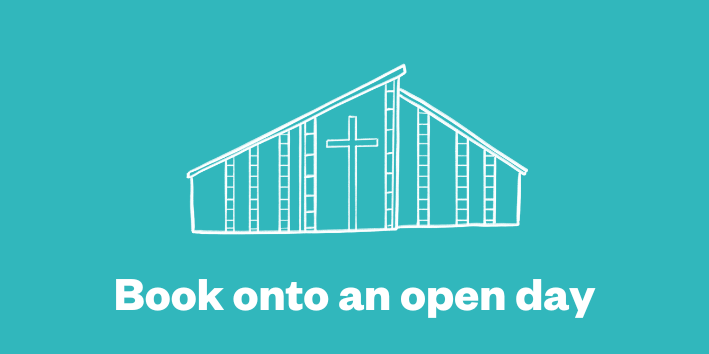
Life is busy
I’m aware that the title of this post may cause some to sit uncomfortably in their seat.
“Mindfulness?” I hear you say. “What place does it have in the Christian life?”
The concept of mindfulness has some links to Buddhism, though not limited to it. For this reason, many Christians are sceptical of the practice. Let me illustrate to you why mindfulness might actually be what is missing in your life.
As I have transitioned into adulthood, I have begun to experience how busy life is: holding down a job; pursuing relationships; maintaining a good physical and mental wellbeing whilst being immersed in a church community. These are just a few of the many things that take up the 24 hours of each day. Life is busy.
Scattered attention
This lifestyle can often result in us multitasking. Let me be clear, I am in no way against multitasking, the skill often allows many of us to be effective and get many things done simultaneously. However, this action of juggling many things at once stops us from focusing on the task in hand; in other words, it affects our attention.
The American Psychological Association helpfully defines attention as, “a state in which cognitive resources are focused on certain aspects of the environment rather than on others.”[1]
Put clearly, a consistent high load of tasks and responsibilities can result in scattered attention.
As we have experienced lockdowns and with working from home, some people may have more time than ever, whilst others scarcely have five minutes free in the day. A common thread that can be found between both people is that their attention is widespread. For the parent juggling a career whilst supporting things at home, they are physically short of time, and so their time may be spent juggling multiple things. On the other hand, some may be lost in the vacuum of endless amounts of time, and therefore, struggle to truly dedicate themselves to tasks.
Time is scarce and motivation is lacking.
Attention has become so valuable to individuals and businesses that some have applied economic theory to human attention, [2] viewing it as a commodity. For many businesses, for example gaming developers, the more they capture our attention, the more likely we are to spend money on their product. Therefore, this means that advertising, marketing and many elements of smart phones are designed in such a way to capture our attention. This makes sense from a business perspective, however, from a personal wellbeing perspective it can leave us feeling devoid of any spare time and saturated in busyness.
Be still
This leads me on to talk about the importance of protecting our time with God. I believe that part of the reason why it can be so difficult to slow down and come into God’s presence, is because we have become so conditioned to a fast-paced, quick, and instant lifestyle.
Everything about slowing down is foreign to us. Therefore, we need to have intentionality when approaching our Father in heaven.
The Bible talks a lot about being quiet and still before the Lord. [3] We don’t see God telling us to multitask in our prayer life. Whilst it is true that we can pray anywhere anytime, God consistently tells us that in order to meet with him, we need to quietly come before him, without distraction.
In Luke 10:38-42, we are told that Jesus visits a lady called Martha, who has a sister named Mary. Mary “sat at the Lord’s feet and listened,” whilst Martha became “distracted with much serving.” Martha was frustrated because her sister left her with all of the work to do. Jesus then responds to her by calling out her anxiety and tells her that only one thing is necessary from her, that she choose the “good portion,” which is seeking God himself.
Martha reminds me of myself. I’m sure many of you may feel the same. Martha was distracted with serving. I get distracted by work, with keeping a home, by mindlessly scrolling through my phone and with wanting to do God’s work.
Jesus isn’t rebuking hard work, he is rebuking Martha’s reluctancy to be in her rightful place, “sat at Jesus’s feet.” Drawing ourselves close to him, spending time with him and learning from him all encompass what it means to sit at Jesus’s feet. This passage also highlights perhaps a good antidote for moments of anxiety: that is, to stop what we are doing and to come to Jesus because his burden is “light and easy.” [4]
Focus on the present moment with God
The reason this post is entitled “becoming mindful,” is because as illustrated above, we cannot continue to rush into God’s presence expecting him to move and speak when he desires us to do the opposite.
In order to fully delve into this, let’s lay out a few things. I am not a psychologist, CBT therapist or mindfulness practitioner and so even though I do not claim to be a professional, I do hope to enlighten you on the topic of mindfulness.
So, what do you do when your mind is full? What do you do when life becomes overwhelming?
There are many things we can do to help ourselves in these moments. One thing is clear from our fast-paced busy lives, is that we all need to develop a skill that enables us to shut out all of our distractions and focus on God.
Mindfulness, which is the ability to focus your attention on the present moment, [5] is a tool we can all use to regain a calm state in those storm-like moments. To come back to your present moment, to look outside, focus on something beautiful that God has created, take note of the space you’re currently in, rather than your thoughts or worries about the future.
Dr Kate Middleton, a psychologist and church leader in Hitchin, talks about mindfulness being about a choice. If our minds become overwhelmingly emotional due to our circumstances, the rational part of our brain can actually “turn off” and our slow processing is severely affected. We then become irrational in our decisions because we resort to fast processing which often results in us making choices we would not usually make. [6]
This is interesting. Psychology teaches us that being mindful of the present, rather than focusing on the “what-ifs” of the future can essentially help us think more clearly. Perhaps that is why God desires us to be still before him, because he knows that in order to clearly focus on minds on him, we need to have slowed down first.
Whilst some stop at engaging with mindfulness, I would suggest that there is a need for one more step. Mindfulness can slow us down and get us thinking more reflectively, but only Jesus can truly calm the storms in our lives. Mindfulness is a tool that can us help cut ties with our distractions so that we can come before the Lord expectantly waiting for him to speak and move.
Perhaps you could consider whether mindfulness techniques could help you engage with God a bit better during this season of your life.
Discover more about being mindful
- NHS website – Mindfulness
-
[1] “Attention,” American Psychological Association, accessed February 4, 2021, https://dictionary.apa.org/attention.
-
[2] “Paying Attention: The Attention Economy,” Berkley Economic Review, accessed February 4, 2021, https://econreview.berkeley.edu/paying-attention-the-attention-economy/
-
[3] Psalm 131:2; Job 6:24; Psalm 46:10; Exodus 14:14
-
[4] Matthew 11:28-30
-
[5] Dr Kate Middleton, “Mindfulness and the importance of rest and relaxation,” Soul Survivor, 2:10 September 30, 2019, https://www.soulsurvivorwatford.co.uk/dr-kate-middleton
-
[6] Middleton, “Mindfulness,” 9:45.





